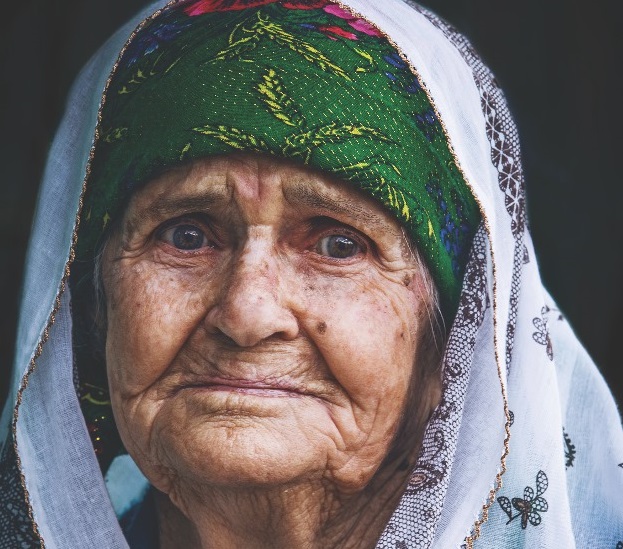Only in 1989 did the USSR condemn the deportation, after which the indigenous people of Crimea started returning to their homeland. The deportation was recognized as a genocide by Ukraine in 2015, and afterwards - by Latvia, Lithuania, and Canada.
However, again today, thousands of Crimean Tatars were forced to leave the Crimean peninsula due to Russian occupation of 2014; hundreds of those who stayed are persecuted.
The return from deportation did not go smoothly. Crimean Tatars for whom their land and their home have a special meaning, had to live in temporary shelters when coming back to Crimea. The houses that belonged to them before the deportation were occupied by other people. Most of them met Crimean Tatars with an icy attitude, not allowing those who returned even to buy back their old homes. The Crimean Tatars were forced to start from scratch.
Tamila Tasheva, the Crimean Tatar founder of the human rights organization Crimea SOS and Deputy Permanent Representative of the President of Ukraine to Crimea once told Euromaidan Press that her family, as well as many others, decided to build their own home. However, due to the lack of funds, constructions usually dragged on for long years.
“Many Crimean Tatars faced the same situation in 2014. They had to leave Crimea, but they had just finished building their house. I know that some sold their home with tears on their faces and were forced to move here (onto the mainland) because it is virtually impossible to stay there.”
Nowadays, visiting her home is dangerous for Tasheva because of her activities; returning to Crimea became her life mission.
With the beginning of the occupation in 2014, about 25,000 Crimean Tatars had to leave their homeland. Among them is the famous Crimean Tatar singer and Eurovision winner Jamala.
“I can’t even tell you how much I want to go to Crimea - especially in spring when you know that it is at this time that it is even more beautiful. Now, as never before, I often travel in thoughts to my house, to the mountains, to the shore, where I dived, swam, walked,” she said in one of her recent interviews.
In mainland Ukraine, a number of commemorative events have been scheduled for the day. Crimean Tatars themselves tell the tragic stories of their families. This one is from Jamala:
“On the morning of May 18, my great-grandmother Nazilkhan and her five young children were put in freight cars and sent to Central Asia. At the time when my great-grandfather was at war. They drove in terrible conditions for almost two weeks. The youngest child, a daughter, unfortunately, died on the way. The girl was not allowed to be buried, Soviet soldiers took her from her mother.”
The Mejlis of Crimean Tatar People called to commemorate the event in Crimea and mainland Ukraine. After the occupation of Crimea in 2014, Ukraine started gradually fixing the mistakes arising from a lack of policy regarding Crimean Tatars.
However, what is the fate of Crimean Tatars who remained in the peninsula?
Pavlo Kazarin, a Ukrainian journalist from Crimea, draws attention to one detail. The day of deportation and 9 May, marked as Victory Day in World War II, Russia, are very close in the calendar. However, if 9 May in Crimea is celebrated with pathos and honor, like in Russia,18 May remains in the shadows. Kazarin says the reason for this is hidden in the Soviet view of War War II as the “Great Patriotic War.”
“In terms of this myth, the entire history of the war was presented as a struggle between absolute Good and absolute Evil. If you add the deportation of Crimean Tatars to this uncomplicated concept, then it turns out that in Crimea, Good defeated Evil and then, on 18 May 1944, it itself committed an atrocity.”
Therefore, it was easier to erase the deportation, as well as Crimean Tatars in general, from history; otherwise, it would destroy everything on what the Soviet Union relied.
As Soviet concepts and rhetoric became mainstream again in modern Russia, Crimean Tatars living in the peninsula were forced to accept them.
Hundreds of those who decided to stay in occupation became victims of repressions.
According to a monitoring of human rights violations in Crimea in the first quarter of 2020 by the Crimean Tatar Resource Center, Crimean Tatars, who make up around 12% of the population of Crimea, are disproportionately targeted by law enforcement. Out of 15 illegal raids police undertook during this time, 12 took place in the houses of Crimean Tatars. Out of 25 people detained, 14 were Crimean Tatars. Out of 97 people under unlawful arrest, 85 are Crimean Tatars. Out of the 127 people denied the right to a fair trial, 110 were Crimean Tatars.
Moreover, the situation with the COVID-19 pandemic exposed the unlawfully incarcerated Crimean Tatars, most of whom were falsely accused of terrorism for simply practicing their Muslim faith, to additional danger. Some have high temperatures and a cough but aren’t even being given tests to see if they have the virus and need treatment.
Those held in prison colonies in Crimea “do not have even elementary means of personal protection, masks or disinfectants,” and “tests for the new virus are not conducted there” at all, as reported by Kseniya Kirillova.
According to Estonian human rights activist and member of the UN Permanent Forum on Indigenous Issues Oliver Loode, the most effective methods of countering the discrimination of Crimean Tatars are to accelerate the processes of deoccupying Crimea, because under the conditions of Russian occupation the discrimination will inevitably continue.
Read also:
- Deportation, autonomy, and occupation in the story of one Crimean Tatar
- I survived genocide. Stories of survivors of Crimean Tatar deportation
- “They can destroy buildings, but not the spirit,” – Crimean Archbishop on Russia’s religious persecution
- ‘The disappeared’ – the hidden part of Russia’s hybrid deportation of the Crimean Tatars
- Deportation, genocide, and Russia’s war against Crimean Tatars
- Crimean Tatars no longer alone in remembering Stalin’s crimes against their nation
- Deportation, autonomy, and occupation in the story of one Crimean Tatar
- Top-6 Soviet World War II myths used by Russia today
- Ukrainian parliament declares 1944 Soviet deportation of Crimean Tatars an act of genocide
- 7 myths driving Russia’s assault against the Crimean Tatars
- Why the Kremlin fears the Mejlis of the Crimean Tatars





